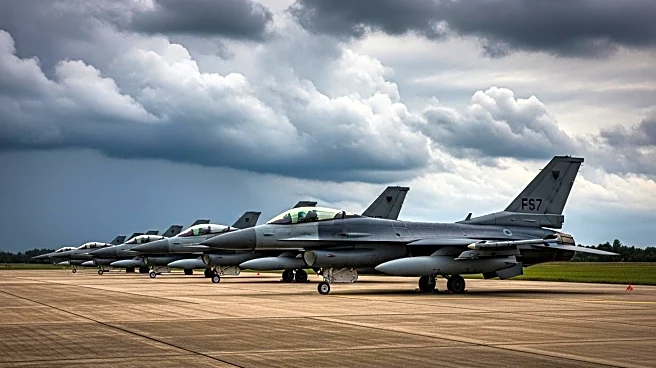What's Happening?
NATO has responded to recent Russian military activities by scrambling jets from Italy, Sweden, and Finland after three Russian fighter planes entered Estonian airspace. This incident is part of a broader pattern of Russian incursions, including drone activities in Romania and Poland, both NATO members. The alliance has initiated 'Operation Eastern Sentry' to bolster its eastern defenses. However, the United States is notably absent from this operation. French President Emmanuel Macron addressed this issue in an interview, highlighting the U.S.'s non-participation in the current NATO response efforts.
Why It's Important?
The absence of the United States in 'Operation Eastern Sentry' raises questions about its commitment to NATO's collective defense strategy, especially in light of increasing Russian military provocations. This situation could impact the alliance's cohesion and effectiveness, as the U.S. has traditionally played a leading role in NATO operations. European allies may feel pressured to reassess their defense strategies and capabilities in response to perceived gaps in U.S. support. The situation underscores the importance of transatlantic unity in addressing security threats from Russia.
What's Next?
NATO may need to reassess its strategic approach and member contributions to ensure a robust defense posture along its eastern flank. The U.S. could face diplomatic pressure to clarify its stance and potentially increase its involvement in future NATO operations. European nations might also consider enhancing their military capabilities and cooperation to compensate for any perceived shortfall in U.S. engagement. Ongoing diplomatic discussions are likely as NATO seeks to maintain a unified front against Russian aggression.









